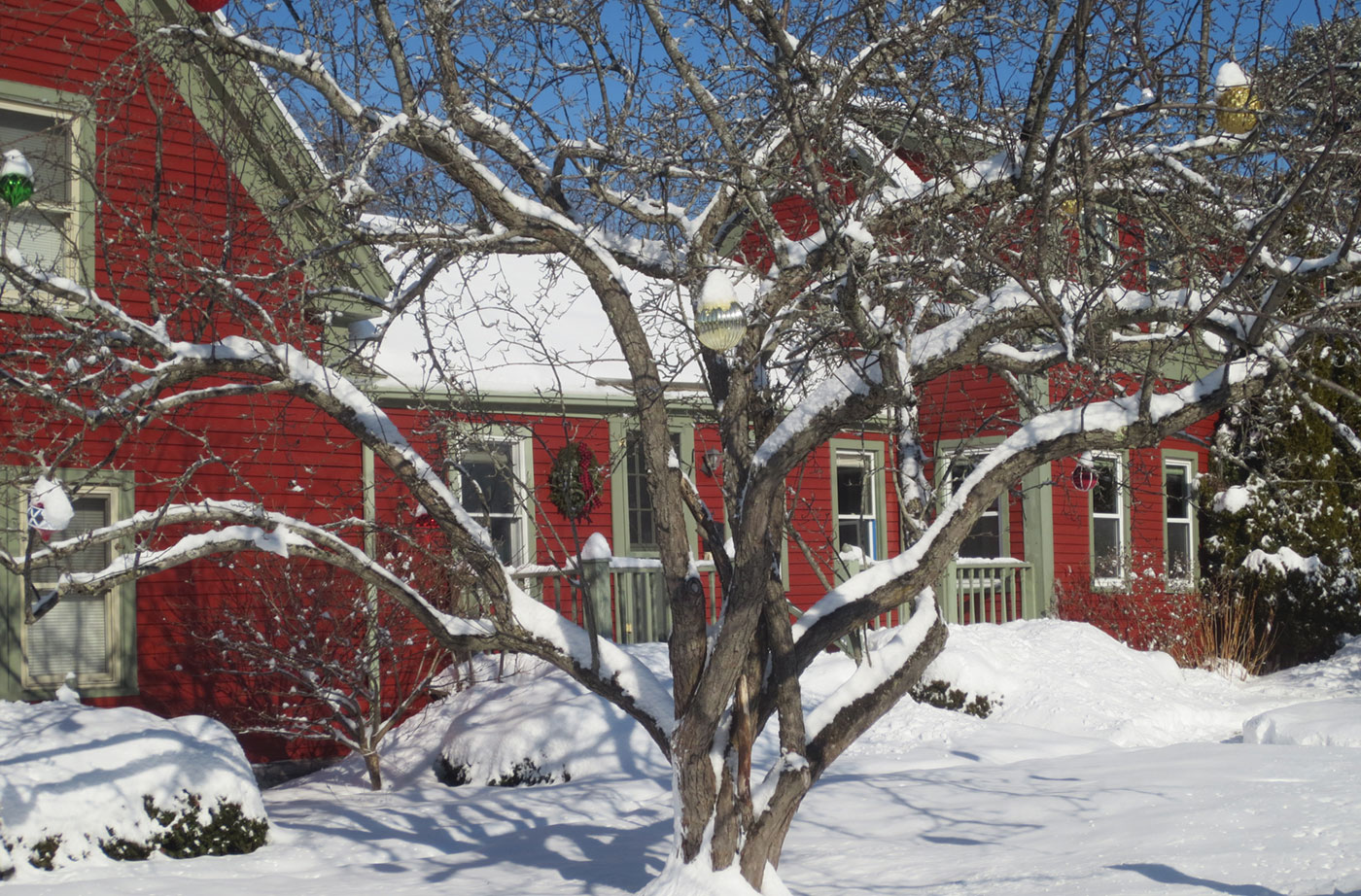My quiet, tree-lined neighborhood in South Portland is called Pleasantdale. But the toxic stench from nearby petroleum tank farms frequently makes our neighborhood decidedly unpleasant. I can step out my door on a beautiful day – be it spring, summer, fall, or winter – and instead of fresh air, get a lungful of what smells and tastes like the fumes given off during a street-paving operation or at a gas station while filling up a car.
Those emissions from the tank farms don’t just smell bad – they also make our neighborhood unhealthy. Everyone in our city has learned that tank farms in South Portland have been exceeding air pollution limits for years. They’re making the air in our neighborhood unsafe to breathe.
My husband and I bought our home on Robinson Street in 2003. It’s an old farmhouse that’s nearly 200 years old. We fell in love with its historic character at first sight.

We had looked at another house a few blocks away before seeing this one. One of the reasons we decided against that house was that it was on Elm Street, where oil tankers rumble by 24/7, headed to and from the tank farm on Turner’s Island. But Robinson Street, which is just one block long, is not on the regular truck route. We can’t see the oil tanks from our house, and we don’t see tankers traveling up and down our street every day. We felt safe buying our house.
We didn’t know then that something we couldn’t see made us unsafe: the toxic emissions. We didn’t smell them when we viewed the house because the odors are intermittent, seeming to depend on such factors as activity at the tank farms and which way the wind is blowing. We never know when to expect them. The smell is just an olfactory warning of what is being spewed into the air, however. I’m sure that the air pollution the emissions cause lingers long after the odors they generate and may be impacting our health.
I was diagnosed within the past year with adult-onset asthma. I’ve never had breathing problems before. My husband has had asthma since childhood but his has worsened since we moved here. I’m concerned about the long-term impact that significant amounts of toxic emissions, some of them cancer-causing, will have on our health.
The tank farms argue they’ve been in the neighborhood a long time. But they don’t predate the people here – our house, built in 1834, was one of the first in the neighborhood, and we have many older homes here. Regardless of when they were established, the tank farms are not being good neighbors.
They exist cheek-by-jowl with many residences, filled with people of all ages, from infants to seniors, who are negatively impacted by the tank farms’ toxic emissions.
The city’s Greenbelt trail runs through our neighborhood so it also attracts many visitors. I suspect that the fumes have scared off walkers or cyclists who might have considered becoming residents here. Our home has a rental unit and some potential tenants have voiced concerns about breathing in polluted air. As more becomes known about these emissions, they impact property values. The tank farms should not be operating their businesses in such a way that they lower property values and deny their neighbors their right to have clean air to breathe.
It is clear that the tank farms will not voluntarily protect their neighbors, so I support state legislation to require and enforce the most robust monitoring and control of emissions possible, as well as stricter emission standards for South Portland and Maine as a whole. I look forward to working with my neighbors and organizations such as the Natural Resources Council of Maine to pass a bill through the Maine Legislature this year to monitor and control emissions from above-ground oil storage tanks statewide.
Let’s clean up the air to make Pleasantdale and other neighborhoods in South Portland and in Maine pleasant again!
—by Tess Nacelewicz











Leave a Reply